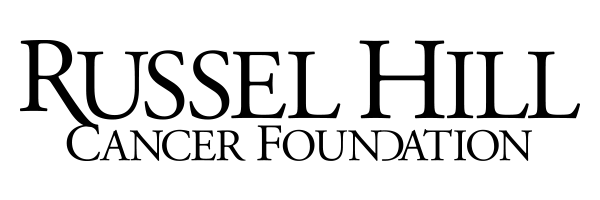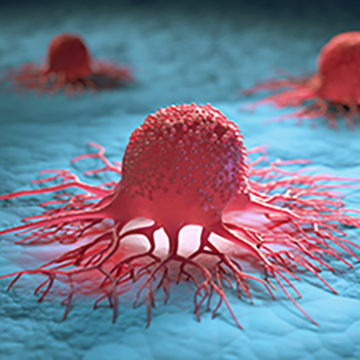HudsonAlpha Institute for Biotechnology, in collaboration with Kailos Genetics (both based in Huntsville, Alabama) is offering FREE genetic cancer risk testing for breast and ovarian cancers, as well as a host of other cancers, to all women and men 28-30 in Madison, Jackson, Limestone, Marshall and Morgan Counties for a limited time. All other residents of these counties are eligible for the discounted rate of $129. You may also GIFT A TEST to someone you care about and could benefit from this information.
The idea for Information is Power emerged from a challenge issued to HudsonAlpha at the 2014 Tie the Ribbons breast and ovarian cancer fundraising event. HudsonAlpha developed the project to provide individuals access to information about their inherited cancer risks through genetic testing.
Phase one launched in October 2015, offering free tests to women in Madison County: more than 1400 people were screened the first year. Since then nearly 6000 people have participated and 4% have discovered they test positive for a gene change that increases the risk of developing cancer. Based on personal and family history information provided by these patients, half of the positive patients would not have been recommended for testing under standard medical guidelines.
Thanks to support from local, state and federal organizations including the Russell Hill Foundation, Jane K. Lowe Foundation, the Breast Cancer Research Foundation of Alabama, the Center for Clinical and Translational Sciences, and from local governments including the city of Huntsville, the city of Decatur and Madison County Commissioners office, we have provided this opportunity to our community for over 7 years and counting.
Research is another important mission area for HudsonAlpha and while this initiative is not research-based, participants are given the option to participate in research. We hope that continued participation in this initiative will help fuel research at HudsonAlpha addressing a variety of questions about how and why individuals choose to participate in genetic testing programs, how healthcare providers use genetic information, how we can improve educational materials to suit needs of our participants and how initiatives like ours might reduce health disparities.
Changes in multiple genes are associated with increased risks for a variety of cancers. The Information is Power screening program will provide access to testing of several dozen genes, including BRCA1 and BRCA2, linked to hereditary cancer risk. Although changes in these genes are rare, it is important to identify them because healthcare providers can use this information to alter a patient’s care or identify cancer at an earlier stage.
Any consenting adult (19+) is able to learn about their cancer risk through the test developed by Kailos Genetics. Women and men residing in Madison, Jackson, Limestone, Marshall and Morgan Counties ages 28-30 can take the test at no cost for a limited time. Other age groups can participate for the reduced cost of $129.
Testing can be initiated by visiting the Kailos Genetics website. After entering some basic information, including a physician who you would like to authorize your test, you will receive a test kit through the mail. To qualify for the free or reduced cost testing through the Information is Power screening program, proof of age and residency must be returned to the lab with your sample.
Thank you for giving the gift of information. First, click the GIFT button and fill out the information. Next, you will then receive an electronic Gift card with a unique code. Once you receive the code, you can then forward the Information is Power test card to the person you would like to receive the test.
Upon receiving the gift notification, the recipient will then go directly to the Kailos website and order the test with the unique code.
Restrictions: Two states that are excluded from this offering (New York and Maryland). Individuals 19+ that reside within the other 48 states are eligible.
This genetic screening can identify changes within a number of genes that carry with them an increased risk for breast, ovarian, colon, and several other types of cancer.
This genetic screening may or may not find a known genetic risk factor. A negative result does not rule out the chance you have the known genetic change in the family. However, you can still use this test to have other cancer genes screened. If you or a family member have had previous genetic testing that found a risk factor in one of the genes, a clinical genetic counselor can help coordinate testing specifically for the known genetic change.
This genetic screening does NOT diagnose cancer nor does it replace other types of screening such as mammograms or colonoscopies. It also does not tell whether an individual definitely will or will not develop cancer in the future, as the presence of a risk factor does not increase cancer risk to 100%. Likewise, the absence of risk factors identified through this screening does not necessarily reduce cancer risk.
A positive result from this genetic screening indicates that a change is present in a gene that increases your risk for certain types of cancer. It does not mean that you have cancer. The specific cancer types and risk level depends on which gene has a change present. If you have a positive test result, you will receive a phone call from a Kailos genetic counselor to further explain your result and your recommended next steps, which include seeking an appointment with a clinical genetic counselor that specializes in cancer genetics.
A negative result from this genetic screening indicates that no risk-increasing changes were identified in the genes tested. This does not mean that you will never develop cancer. It is important to know that even in the absence of genetic risk factors, everyone has a baseline risk of developing cancer (e.g. 1 in 8 women for breast cancer or 1 in 25 individuals for colon cancer).
The Genetic Information Nondiscrimination Act of 2008 (GINA) protects individuals from having their genetic information used against them when obtaining employment or health insurance at companies with at least 15 employees. Protected genetic information includes family history, participation in genetic testing or counseling, and specific genetic test results. However, it is important to note that this protection does NOT apply to other types of insurance, including life insurance and long-term care policies. A life insurance company CAN ask whether you have had genetic testing and may deny coverage or increase premiums if you have a genetic risk factor for cancer. They can also increase premiums based on other factors like cholesterol levels, family history of disease, and other factors protected by GINA for employment decisions.
Your sample will be stored at Kailos Genetics if any of it remains. Your data, which consists of the sequence of 33 genes, is also stored at Kailos Genetics. While your genome—all of your DNA put together—is unique to you, the sequence information from just a small number of genes would not likely be unique to you and, it would not be used to identify you. As a clinical laboratory, Kailos Genetics is not authorized to release your sample, data, or test results or report to anyone other than you or your doctor. As a partner, HudsonAlpha Institute for Biotechnology has access to the demographic information for each participant along with a result of positive or negative and the genetic change involved in positive tests. HudsonAlpha does not have access to identifying information such as names, birthdates, and/or addresses.




Cancer is Scary
Let our researchers and genetic counselors answer questions about the risk for these cancers:

